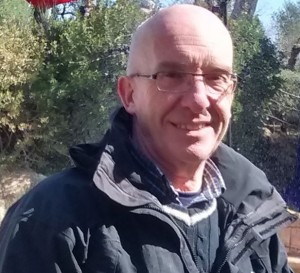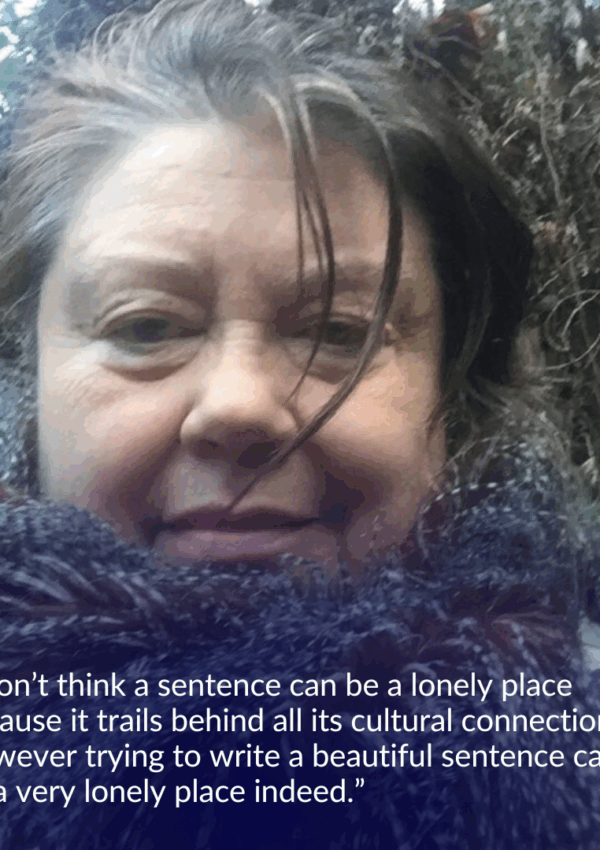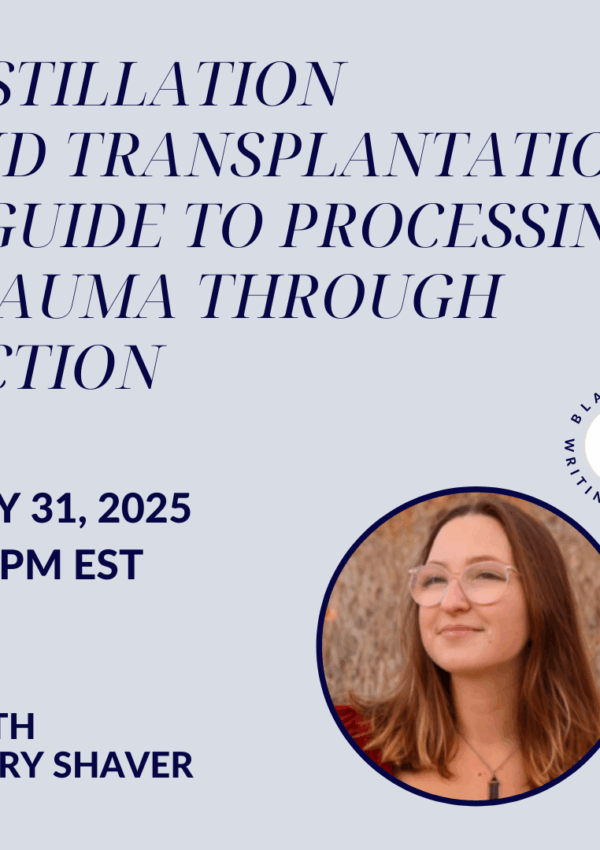An Interview by Alicia Cole
 John Dodds is the author of The Kendrick Chronicles crime novels, published as audiobooks by Blackstone Audio, Inc., USA. The first two, Bone Machines and Kali’s Kiss, are narrated by Robin Sachs, an actor who has appeared in Buffy the Vampire Slayer, Babylon 5, and Lost World: Jurassic Park, among other movies and TV shows. Babylon Slide, the third in the series, is narrated by John Lee, a multiple award-winning audiobook narrator known for his work on books by major authors such as George R.R. Martin, Jo Nesbo and many more.
John Dodds is the author of The Kendrick Chronicles crime novels, published as audiobooks by Blackstone Audio, Inc., USA. The first two, Bone Machines and Kali’s Kiss, are narrated by Robin Sachs, an actor who has appeared in Buffy the Vampire Slayer, Babylon 5, and Lost World: Jurassic Park, among other movies and TV shows. Babylon Slide, the third in the series, is narrated by John Lee, a multiple award-winning audiobook narrator known for his work on books by major authors such as George R.R. Martin, Jo Nesbo and many more.
John was born on the Isle of Lewis off the west coast of Scotland and currently lives near the country’s capital, Edinburgh. He trained as a journalist but worked mainly as a publicist, first in the arts and later in the social housing sector. Although his fiction is mainly in the crime, horror and science fiction genres, he has also written historical romance (an anthology called Warriors and Wenches, for Melange Books, USA), YA (The Mechanikals) and even mash ups such as his paranormal romantic comedy novelette, Dead Boyfriends. Three of his short stories received honorable mention in The Year’s Best Fantasy and Horror.
For a change of pace he recently wrote and is currently editing a mainstream novel called Café Insomnia—starring Julie Bellwether and her quirky group of friends who patronize the eponymous café for the sleep-deprived—a comedy with serious bits or a serious novel with comic bits. The beta readers have demanded a sequel, which he has begun writing, potentially entitled Café Insomnia 2: The Sleepover.
John is a trained person-centered counselor and edits the journal, Counselling in Scotland. He is also a book reviewer, blogger and sometimes podcaster for Adventures in Scifi Publishing, and writes monthly columns for Amazing Stories Magazine. He enjoys singing, playing guitar, walking, and cycling. He particularly cares for making pasta dishes, and honestly believes he was Italian in a former life.
Black Fox Literary Magazine: When did you decide to become an author?
John Dodds: I tend not to call myself an “author,” preferring “writer” – author suggests “have done” rather than “still working on it,” and it also feels a little bit too grand for me. I didn’t decide to become one, as such. Basically I’ve always written. I trained as a journalist, wrote numerous short stories and eventually knuckled down and wrote my first novel, having part-written two previously. Also, making a living as an author/writer is still an aspiration – I’ve worked in journalism and public relations and I still offer services as a freelance copywriter, editor, content manager, proofreader, and I also edit a counseling journal. Many writers I know of need a day job – it’s only the rare birds who make a healthy living from it.
BF: Were you supported in this endeavor? Inspired? Denigrated? If so, by whom and how?
JD: I’ve always been supported. Aside from friends and family, my wife, Carole is always my first reader and supportive feedback-giver. I’m lucky to have found some excellent beta readers, too. I was inspired by my high school English teacher initially, and I am continually inspired by the great books I read, ranging from Charles Dickens to Connie Willis. Music also inspires me, as does film, theatre, dance, and art.
BF: Did you study formally or informally, and can you describe how you prepared to work as a professional writer? Were there monkeys involved?
JD: I leave the monkeys for the works of Shakespeare. Formal training was simply high school English, an apprenticeship as a journalist, and then continuous learning as a publicist. I learned mostly from books. Me and my brother used to make up stories as children and record them (with sound effects) on a reel-to-reel tape recorder.
BF: What drew you to the world of crime writing? Is there a specific side of the human condition you’re hoping to uncover?
JD: My biggest ambition had been – and to some extent still is – to write science fiction. After numerous rejections, apart from a near miss with New Worlds magazine when I was a teenager, I’ve gravitated toward the dark side. Which means horror stories and crime and, as is the case with my Kendrick novels, both at once. I don’t feel I am trying to uncover any particular aspect of the human condition, though exploring them is very much my thing. Essentially, I love complex characters, just as we human beings are complex. My villains often have touches of humanity, and the good guys are never entirely good. What I enjoy doing most of all is pushing my characters to the edge to see what will happen to them. Does that sound sadistic? Well, perhaps it is. At heart I believe Robert McKee’s statement that “story IS character,” and the richer the characters, the better the story in my view.
BF: Are your aims different when you write speculative fiction?
JD: No, not at all. All I want to do is to tell a good story – and if there are multiple layers, so much the better. The “what if…” aspect of speculative fiction in particular, though, can take me down paths I didn’t know existed. I very much enjoy that sense of adventure I get with speculative writing. On the other hand, maybe all fiction is speculative, in one way or another, though with some science fiction it may involve things that could happen in the future, rather than holding up a dark mirror to the present.
BF: Can you hypothesize on the human need to understand the dark?
JD: A complex question, which others have answered better. But here’s my cut at it. The need to explore the dark is partly about having a sense of adventure, the thrill ride. The business of trying to understand it, however, may be linked with our primal dread of death and a need to understand what happens afterwards. Understanding the dark, if we can, can also be reassuring. Horror and crime fiction can take us to very dark places and give us some insights into the mechanisms and consequences of evil, or profound selfishness, or human stupidity, and a range of other infernal devices that inform these genres. Too much dark fiction—Hollywood films in particular can be guilty of this—is ultimately about reassurance. We’re taken to the edge of our seats and then told that everything is okay in the end. While that is what can happen often, I applaud fiction and film that keeps people in the dark (both in terms of understanding and with downbeat endings).
BF: Do you find that many of your fans cross over between your two preferred genres?
JD: I’d say yes. I know people who’ve listened to my Kendrick audiobooks and also bought work by me in the steampunk, romance, and even humor genres (an example of the latter is what I call a paranormal romantic comedy, Dead Boyfriends, so I can’t leave horror absolutely alone). What fans often say is, “this would make a great movie – it’s very cinematic” or that they particularly love my characters, in whichever genre I write. Big compliments, which I truly appreciate.
BF: What do you have planned for the future?
JD: I’m on the final edits of Café Insomnia. It’s a novel about a group of unusual people, my main character being a 50-something woman called Julie Bellwether. Some of the characters are eccentric, others just a bit odd, but they all have one thing in common: major problems sleeping. The café is their chosen haven during the night, their place of refuge, somewhere they can have a good old moan about how hard their lives are, or where they can party like no one is watching. Very much a British slice-of-life drama with comedic elements (think “Calendar Girls” meets “The Best Exotic Marigold Hotel”). Café Insomnia is open all hours and is the launchpad for a sequence of events which takes its denizens on some interesting journeys. At the behest of my beta readers I’m under pain of death to write a sequel, which I’ve just begun writing. At some point I hope to return to Detective Inspector Tom Kendrick, but not just yet.
BF: If you could be killed in a work by any living crime or speculative writer, who would it be, and how would you want to meet your untimely demise?
JD: I’m glad you asked that…not! But, I’d say I’d be happy to meet my fate in one of John Connolly’s amazing Charlie Parker novels. I’ve been a fan of the detective and his strange and dangerous sidekicks since reading the first book in the series, “Every Dead Thing.” In speculative fiction, I’d want to die with a group of adventurous historians at some point in the past in one of Connie Willis’s Oxford time travel books.
For more information on John Dodds, visit him here: http://jakk1954.wix.com/johndodds and here: http://bonemachines.wordpress.com.


